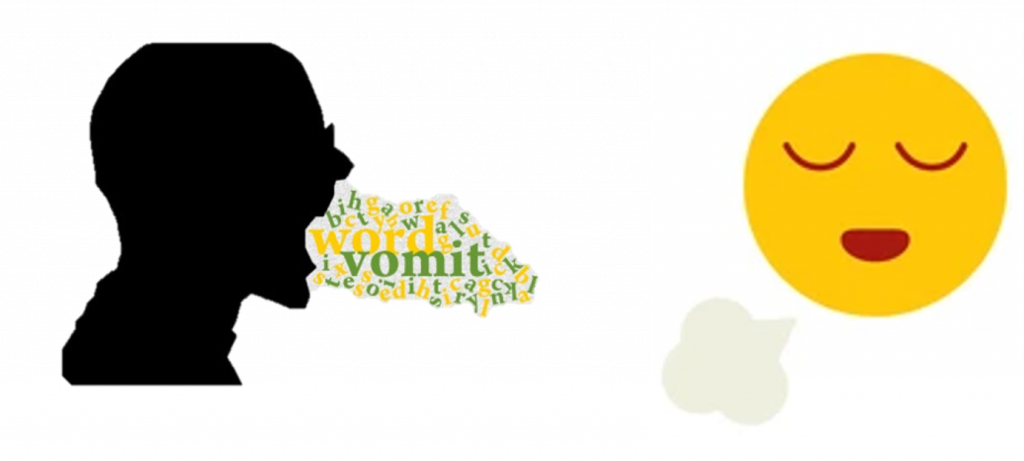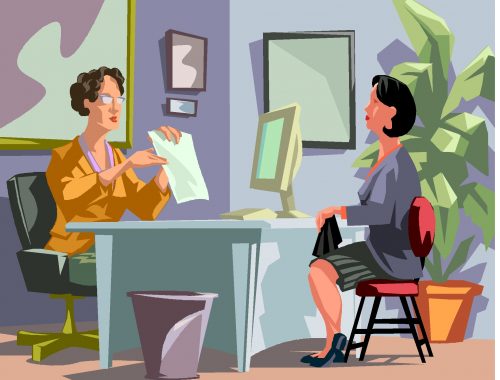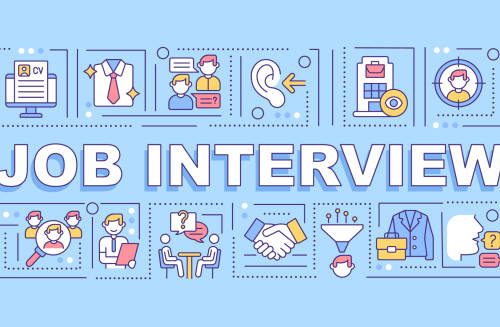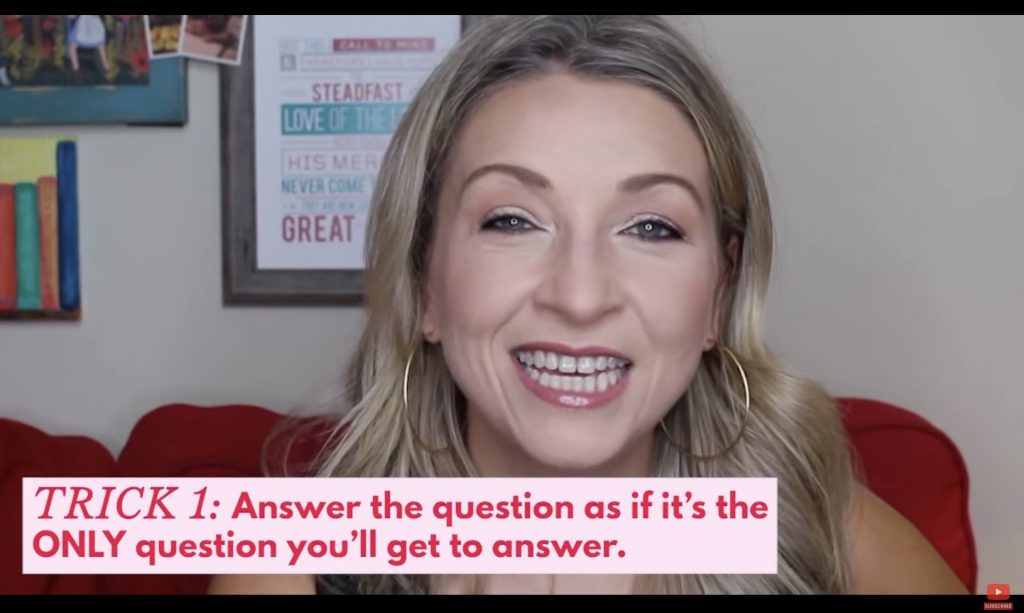They like you on paper.
“If they’ve asked for an interview, they already like you on paper. If they’ve asked for an interview, they already like you on paper…”
I repeated this phrase to myself on the morning of the simulated interview session, dressed in comfortable but smart clothing. It took everything in me not to twiddle my thumbs nervously. I used my small token of reassurance to stay calm. It was supplied to me during a lecture and quickly became my new mantra. I knew my peers would be supportive. I knew it wasn’t a ‘real’ interview, but the anxiety I felt most certainly was. Using the Gibb’s Reflective Learning Cycle, I will reflect on my experience and the development of my skills before, during and after my simulated interview session.

Description and Feelings:
I felt that finding the right job advertisement to interview for was imperative to having a positive experience with the simulated interview session. Wading through listings which required having a minimum of three feature productions under my belt knocked my confidence with every scroll. I finally settled for a producer role on an independent short film project that seemed promising. Feeling under-qualified for each role that I initially came across caused negative thoughts to circle in my mind and anxiety began to manifest.

Anxiety led to procrastination, which in turn led to avoiding preparation until the session had snuck up on me, giving me only a few days left to prepare. To do so, I researched and took advice from the ‘Prospects’ and ‘Verywell mind’ websites, as well as my lecture notes. The Prospects ‘Interview Research’ section helped me to arrange useful information in relation to the employer, the company, the role, and myself. Preparing this information and feeling well-researched helped me to believe in my own abilities, but nerves still paralysed me if I gave the fast-approaching day too much thought. I quickly migrated to the Verywell Mind ‘How to Relax Before a Job Interview’ section and was given advice such as “Every bit of preparation that you can do will help to increase your comfort level and make you feel more confident and capable in the interview.” (Cuncic, A. 2022). Although I had prepared, I still felt anxious, so I took some time to research interview anxiety calming techniques.
I found a useful YouTube video on the topic titled ‘3 Mindset Tricks to Calm Interview Anxiety.’ The tip I found most beneficial from the video was “Answer each question as if it’s the only question you’ll get to answer…and you must answer it thoroughly to get hired.” I took this advice as a reminder to implement the ‘STAR technique’ as effectively as possible during the interview, providing as much relevant detail to my answers as is necessary to fully explore the question. From my lectures I knew that responses which required examples should be relevant and related, and that the ‘Action’ portion of the answer should account for 80% of the answer, ideally ending with a positive result.

The dreaded day finally arrives, and I clutch to my mantra for safety. I approach the simulated interview panel in a calm and friendly way, taking it seriously as to make the most of the experience. The first interviewer to ask a question introduces the idea that the panel wish to learn about my leadership skills throughout the interview and I quickly begin to piece together past examples of leadership I have shown in my head. This allowed my answers to follow the STAR technique effectively in response to competency-based questions.
Evaluation and Analysis:
After what felt like a blur of word-vomit, my ten minutes were up. Although I knew I was happy with my responses, I could barely remember a single word I had said and began to doubt myself. I questioned if I had remembered every detail I was planning to add to my answers. Did I seem boring, overly prepared, or unconvincing? Despite this, after a few moments my peers had convinced me that my interview had gone well, and a sense of relief came over me which allowed me to think clearly again.

Overall, I believe my experience with the interview session was a positive one, as I was able to use my research and preparation to effectively answer the interviewer’s questions to a much higher level than if I had failed to prepare. Making use of anxiety calming techniques as well as my own mantra helped to keep me grounded and therefore improve the quality of my responses and interview etiquette. This experience has helped me to feel more confident in my abilities to effectively prepare for and execute job interviews in the future.
Conclusion and Action Plan:
While reading the feedback my group had compiled for me, I was happy to find a higher ratio of positive comments to negative ones. The group noted that I showed confidence in my answers and kept eye contact well. On the negative side, the group noticed that I had been fidgeting with my hands during the interview to a point where it became distracting and negatively impacted the power of my body language. I was disappointed when I learned this, as I didn’t notice myself fidgeting during the interview.
Although this was the only negative comment I received, it frustrated me. This is because during my preparation I found a research paper entitled ‘Behavioral Expression of Job Interview Anxiety’ which stated, “results indicated that interviewees should focus less on their nervous tics and more on the broader impressions that they convey.” (Feiler, A. and Powell, D. 2015) I put this piece of advice in the back of my mind and didn’t place any focus on subduing my fidgeting. In the future, when approaching a job interview scenario, I would be more mindful of the advice I take from online sources. I would also investigate if the advice I have taken works for me by getting a friend or family member to conduct a practice interview, so they can give me feedback about my downfalls which I may not even notice, such as fidgeting. As I have gained useful tips as well as experience with interviews, I feel the simulated interview session has been a predominantly positive experience, and I feel much better equipped to go out and seize my dream job in the future.

References:
Amanda R. Feiler & Deborah M. Powell (2015) ‘Behavioral Expression of Job Interview Anxiety’, Journal of Business and Psychology Available at: https://doi.org/10.1007/s10869-015-9403-z (Accessed 14 February 2023)
CassCareerConversationalist (2020) 3 Mindset Tricks to Calm Interview Anxiety. Available at: https://www.youtube.com/watch?v=nac0ekXBqcg&ab_channel=CassThompsonCareerAdvice (Accessed 14 February 2023)
Cuncic, A. (2022) How to Relax Before a Job Interview Available at: https://www.verywellmind.com/tips-cope-with-job-interview-anxiety-3024324 (Accessed 14 February 2023)
You May Also Like

To Be Or Not To Be – That Is The Interview Question
23 February 2023
Interview a New You! – Becoming an Interview Guru
24 February 2023

